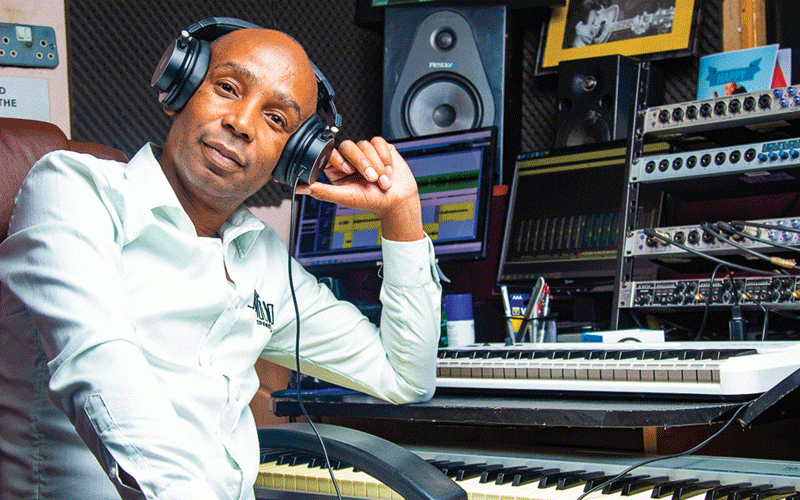
THE 15 000 striking nurses at public hospitals yesterday scoffed at their purported summary dismissal from the public service, literally telling Vice-President Constantino Chiwenga (pictured) who announced the decision in a statement on Tuesday, to go hang.
BY RICHARD CHIDZA
This came amid speculative reports that former President Robert Mugabe’s position as patron of the Zimbabwe Nurses’ Association (Zina) could have poisoned the relationship between the two parties and triggered the fallout
“The Zimbabwe Nurses’ Association has taken note of the Press statement currently circulating on media platforms where government alleges to have fired all striking nurses (sic). We would want to urge our members to remain calm during these times. The position, as
The nurses downed their tools on Monday demanding an improvement in their working conditions, leading to protracted negotiations before Chiwenga pulled the trigger on Tuesday evening and fired the health professionals for allegedly negotiating in bad faith.
The civil servants’ umbrella body, Apex Council, yesterday also rapped government’s “irrational and unconstitutional move” to expel the nurses in the midst of negotiations.
“The Apex Council is shocked by government’s decision, as this constitutes unfair labour practice and against the provisions of Section 65 of the Constitution and the International Labour Organisation’s Convention 98, which gives workers right to strike.
“What is happening in the health sector is a result of miscarriage of negotiations and changing of goalposts by government in terms of implementing and fulfilling agreements made in the past,” Apex Council boss Cecilia Alexander said. “Yesterday, it was doctors, now nurses, all this because of government’s piecemeal and divisive approach in addressing conditions of service in the civil service.”
- Chamisa under fire over US$120K donation
- Mavhunga puts DeMbare into Chibuku quarterfinals
- Pension funds bet on Cabora Bassa oilfields
- Councils defy govt fire tender directive
Keep Reading
Alexander urged government to reverse its decision and engage the nurses.
But government yesterday stood its ground and even wrote to various hospital chief executive officers and provincial medical directors, urging them to urgently rehire retired nurses and unemployed nursing graduates to cover “gaps created by the dismissals”.
“Reference is made to the press statement by the Vice-President Chiwenga on April 17, 2018. You are requested to recruit nurses to cover the gaps created by the nurses who were summarily discharged. Please ensure that your relevant teams are in place to facilitate the recruitment and assumption of duty with effect from 18 April 2018 by retired and unemployed nurses,” Health ministry acting secretary Sidney Makarawo wrote.
According to the letter, copied to the executive director of the Health Services Board Ruth Kaseke, central hospitals were given the greenlight to recruit a maximum of 30 retired nurses, 20 for provincial hospitals, 15 at district hospitals, five for rural and one and two each for rural health centres and clinics.
Added Makarawo: “Any nurses who were expected on duty on the 16th and 17th (April) and did not report as instructed are deemed to have been summarily dismissed.”
The Zimbabwe Congress on Trade Unions (ZCTU), while expressing dismay at government’s decision, suggested that Mugabe, who was deposed as the country’s leader last November, might have been a factor in the break-down in salary talks between government and the nurses.
“We received the news with shock and our understanding is that the nurses followed procedure in embarking on collective job action. We, therefore, do not understand how government arrived at the drastic decision, but are certain these measures will not solve the problems our country is facing,” ZCTU secretary-general Japhet Moyo said yesterday.
Moyo said he was yet to speak to the Zina leadership, hence could not say definitively whether Chiwenga’s claims that the strike had turned political had been inspired by the fact that Mugabe was associated with the union.
“In our view, the leadership of the Zina and the general membership are not on the same page. Mugabe is or was patron of the organisation and that creates problems. When you have the employer as patron, this compromises the union and complicates issues.
“But until we speak to the leadership of the nurses, however, we want to believe that Mugabe’s being the patron has nothing to do with what is happening because, indeed, the nurses are raising genuine concerns that speak to you and me as well as the generality of Zimbabweans, we require healthcare. We don’t want to believe that Mugabe being patron had nothing to do with the strike though,” he added.
But Zina president Simangaliso Mafa dismissed the reports, arguing Mugabe ceased to be the union’s patron soon after he left office in November last year. “He was, but is no longer our patron. We now have trustees and if he was, his name would be appearing on our letterhead. We should not try to cloud issues with unnecessary politics. This is a clear labour issue. Nurses are owed money and government must pay. It’s as simple as that, it has nothing to do with who is patron or not,” the Zina leader said.
Presidential spokesperson George Charamba also said Mugabe became patron of Zina by virtue of being President then.
“Government’s political interpretation is based on the fact that nurses, through their unions, tabled the reasons for their strike to government,” he said.
“They were sent back to dollarise their grievances in negotiations with the ministries of Finance and Health, which they did. Government then instructed Treasury to pay the $17 million, but the nurses chose to remain on strike. What else could government do? We were left with no option.”
But Moyo said government needed to understand the implications of its drastic decision.
“We are not sure if government is aware of the implications of such a decision. However, we are certain it is the ordinary person who will suffer, the child, woman and infirm who will bear the brunt of this decision. The people that government is now going to employ will need retraining and the ordinary person will carry the burden.
“It is wrong for government to take advantage of the high unemployment in the country to exploit people,” he said, adding the nurses’ grievances were genuine.











